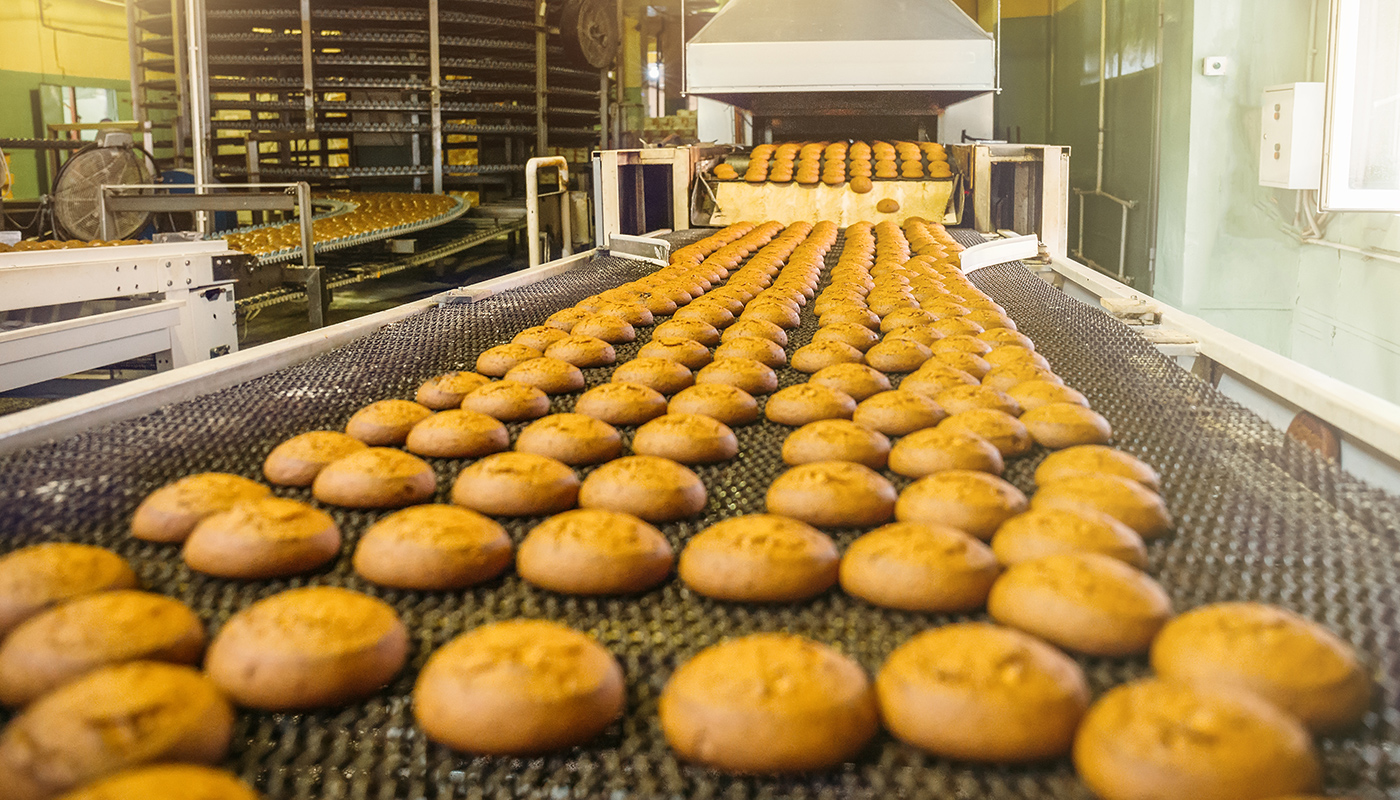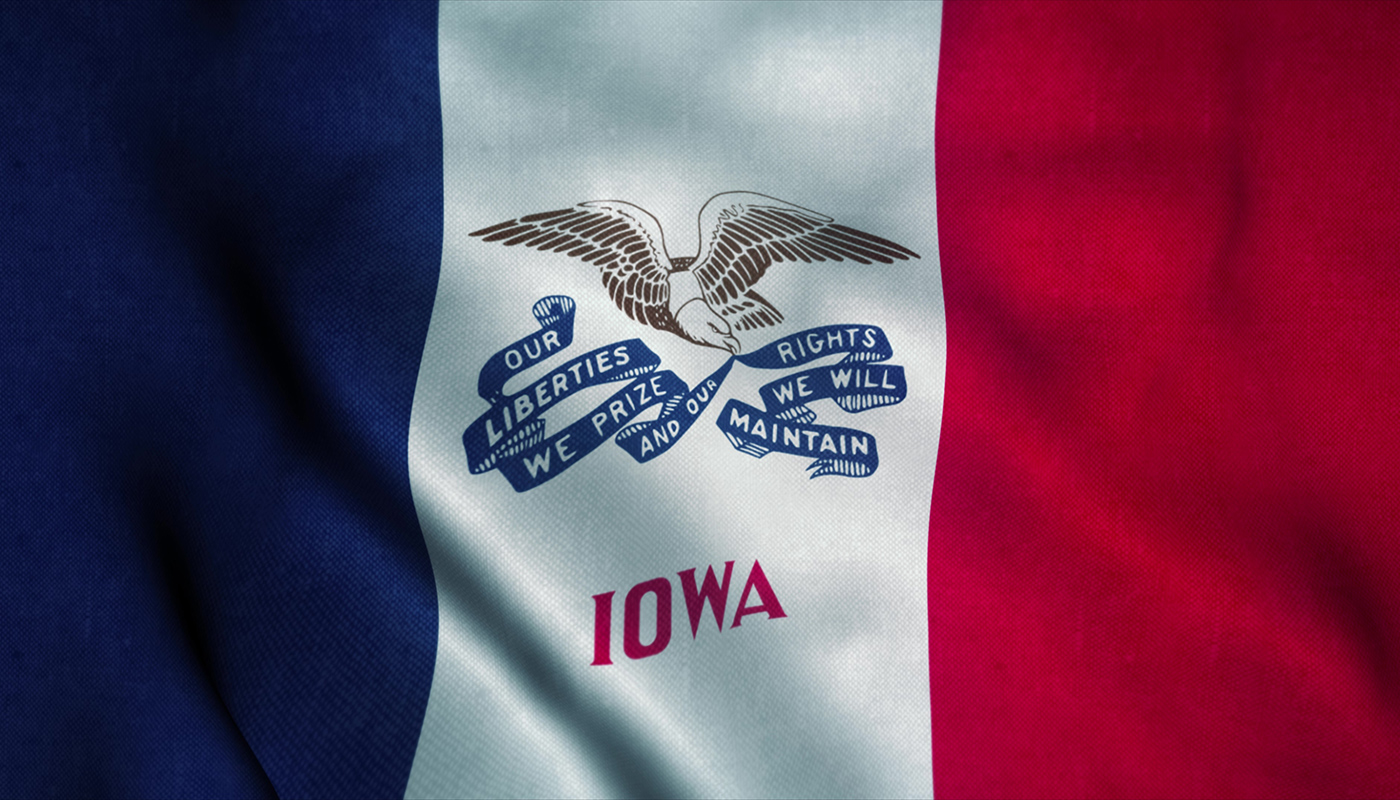eNews March 19
In the News
March 19, 2020
Food Industry Payments and COVID-19
—Michael Miller, managing editor
Earlier this month, British-based grocer Morrisons announced it is moving to immediate payments to smaller suppliers to help improve cash flow during the pandemic. “We are Britain’s biggest-single foodmaker and we want to be there for the smaller foodmakers, farmers and businesses that supply Morrisons,” said Chief Executive David Potts in a release. “We’re a British family business and we will be doing our best to support them through this challenging period.” The new payment policy will go through May before it is reviewed.
While food industry payments aren’t always immediate, terms are typically shorter than other industries due to the nature of the product. Steel can sit in rain or shine for months—a crown of broccoli or a basket of freshly picked strawberries cannot. It’s not out of the question to have payment terms as short as a week since the products are perishable. Stephanie Moody, credit manager with Performance Food Group in Mississippi, says she also works with COD accounts in addition to credit.
However, not all accounts are paid on time. Both Moody and Gregg Bostick, credit manager with Mayfield Dairy Farms, said they are about 90% current, with Moody adding that most of her past due invoices are only late by a week or two. When invoices do go unpaid, there are steps Moody and Bostick follow. “We follow up with the customer to provide missing invoices, generally the reason for past due invoices,” said Bostick. “If it is a true collection issue, we establish a payment plan to bring the account current,” he added. Meanwhile, Moody has a six-step process.
- Customer visits by the sales team.
- Send out both weekly and monthly statements.
- Communication (calls, text, email) from the credit team.
- Customer visits by the credit manager.
- Communication from the vice president of finance.
- Account placed with attorney for collection.
The food industry like many others has been impacted by the recent outbreak of COVID-19. Moody said customers have started offering pick ups and delivery rather than inside dinning, but it might be too early to grasp how drastic an impact COVID-19 will have on her customers.
“The rush on grocery stores has greatly impacted our business,” Bostick said. “We are experiencing increased ‘hot shot’ deliveries as customers run out of product and need to be replenished before their regularly scheduled delivery.”

There's Still Time to Register and SAVE for the Spring Online Courses
Reap the benefits of online education, including better job performance and prospects. Choose from the many upcoming educational courses we offer:
CBA/CBF/CCRA Courses
Accounting: May 4–Aug. 21
Business Law: Apr. 27–Jul. 24
Credit Law: Apr. 27–Jul. 24
International Credit
International Credit & Risk Management: May 11–Aug. 9
• Give your job performance and prospects a boost
• More convenient than the traditional classroom
• Earn course credit toward an NACM designation
• Choose your study and exam times
To be the best, you have to learn from the best! Early bird rate ends April 10, 2020 Visit www.nacm.org to learn more and register for courses.
To be the best, you have to learn from the best! Early bird rate ends April 10, 2020. Visit www.nacm.org to learn more and register for courses.
As Coronavirus Spreads, Industries Assess Supply Chain Options
—Andrew Michaels, editorial associate
The coronavirus is throwing supply chains into disarray as businesses navigate unfamiliar territory last seen with the SARS outbreak nearly two decades ago. Manufacturing is bearing the brunt of the impact with factory closures abroad, in turn, creating limitations for U.S. businesses that rely on China and other affected countries for materials. With the total number of confirmed cases having exceeded 200,000 worldwide, U.S.-based businesses are looking at other supply line options.
Among the professionals weighing in on the virus’ U.S. impact is Wells Fargo who reported a significant decline in container shipments from China to U.S. ports in Los Angeles and Long Beach, California. Although the U.S. economy has shown “a great deal of resilience to external headwinds,” Wells Fargo economists wrote in February, a March report noted the country should anticipate rattled imports and exports in the coming months.
According to Harvard Business Review (HBR), there’s a dependence on companies located in quarantined areas, particularly in China, Italy and South Korea. HBR states more than 12,000 facilities—factories, warehouses and other operations—in these countries are owned by 1,000 of the world’s largest companies or their suppliers. For example, more than 3,200 facilities in the high tech, semiconductor and consumer electronics sector in China are located in quarantined areas. This is followed by 252 of these facilities in Italy and four in South Korea.
“In the last two decades, China became the factory of the world,” Girish Rishi, CEO of supply-chain software provider and consultant Blue Yonder, said in a Barron’s article. “Consumer packaged goods, automotive, apparel, high-tech. I can’t tell you which sector is not getting impacted.”
Experts have repeatedly highlighted the U.S. and its supply line’s dependence on China. In recent years, businesses have acknowledged this and even begun exploring other possibilities such as finding suppliers outside of the world’s second-largest economy. Earlier this month, CNBC reported Apple, Microsoft and Google are all looking for a change.
The Nikkei Asian Review (Nikkei) reported Google and Microsoft are moving their phone, personal computer and other device production to Southeast Asia, the former company starting in Vietnam as early as April. Nikkei states Google’s low-cost smartphone will be manufactured in Vietnam in the second half of 2020, while Microsoft’s Surface line of notebooks and desktops will begin production there in the second quarter.
So, what does this move mean? Decisions to move production outside of China may be an act of risk mitigation, MIT Center for Transportation & Logistics Deputy Director James B. Rice, Jr. wrote in HBR. In addition, it gives companies a chance to “revisit” the supply chain’s design, including redesign by second sources, or a backup, and redesign by local sources.
“These are gross simplifications of many design options that the firm can take to reduce risk and ensure response capacity. A more detailed analysis and assessment is necessary,” Rice wrote. “Obviously, in selecting a design, companies have to weigh the costs of each and how it will affect their ability to serve their customers and compete against other firms. … Firms should regularly revisit and challenge their design choices and the strategies that underpin them.”
And as far as moving production, Bryan Ma, vice president of devices research at IDC, told CNBC the decision “isn’t a cure-all,” as countries other than China can also be subjected to disease, trade wars, etc.

FCIB Presents Two Webcasts on the Topic of Commercial Collections
Best Practices and Global Considerations
March 24, 2020
Speaker: Jeff Tharnish, International Collection Manager, ABC-Amega, Inc.
This webinar will focus on setting up an internal collections process along with the steps that creditors can take once an account has become past due. Additionally, the presenter will discuss best practices that credit and collection professionals can implement to positively impact their debt collection efforts in the U.S. and around the world.
- Establishing an internal collections process
- Steps to take before the due date
- Collections best practices
- Global considerations in commercial debt collection
- Global sensitivity
- Tips for collecting in the Americas, Europe and Asia
This webinar will benefit members of a company’s internal credit and collections team at all levels and will close with an interactive Q&A session. For more information and to register for this webinar, please call 410-740-5560 or visit us here.
Debt Collections in Spain
March 26, 2020
Speaker: Belen Lopez, Bierens
Following a brief overview on Spain, the presenter will share information about the payment behavior of Spanish companies as well as where and how to find information on them. This webinar will also include real case examples and cover:
- How to prevent payment problems
- How to strengthen your position as a creditor
- Spanish law concerning late payment interest, collection costs and statutory limits
- The amicable phase of debt collection: official summoning letters, debtors lists and payment plans
- The legal phase of debt collection: an overview of the Spanish legal system and which legal procedures are suitable for collection claims
- Insolvency and what to do
For more information and to register for these webinars, please call 410-740-5560 or visit us here.
Best Practices and Global Considerations
March 24, 2020
Speaker: Jeff Tharnish, International Collection Manager, ABC-Amega, Inc.
This webinar will focus on setting up an internal collections process along with the steps that creditors can take once an account has become past due. Additionally, the presenter will discuss best practices that credit and collection professionals can implement to positively impact their debt collection efforts in the U.S. and around the world.
- Establishing an internal collections process
- Steps to take before the due date
- Collections best practices
- Global considerations in commercial debt collection
- Global sensitivity
- Tips for collecting in the Americas, Europe and Asia
This webinar will benefit members of a company’s internal credit and collections team at all levels and will close with an interactive Q&A session. For more information and to register for this webinar, please call 410-740-5560 or visit us here.
Debt Collections in Spain
March 26, 2020
Speaker: Belen Lopez, Bierens
Following a brief overview on Spain, the presenter will share information about the payment behavior of Spanish companies as well as where and how to find information on them. This webinar will also include real case examples and cover:
- How to prevent payment problems
- How to strengthen your position as a creditor
- Spanish law concerning late payment interest, collection costs and statutory limits
- The amicable phase of debt collection: official summoning letters, debtors lists and payment plans
- The legal phase of debt collection: an overview of the Spanish legal system and which legal procedures are suitable for collection claims
- Insolvency and what to do
For more information and to register for these webinars, please call 410-740-5560 or visit us here.
Changes to Iowa Mechanic’s Lien Law: Staying Informed Is Key
—Christie Citranglo, editorial associate
Iowa’s mechanic’s lien law saw a change in February after an Iowa Supreme Court Ruling. Previously, under Iowa statute, contractors were able to recover attorney’s fees for all projects in addition to the amount owed. After the February ruling, this stipulation will no longer be applicable to residential projects, specifically for “homestead” properties, meaning the project serves as a person’s primary residence.
Under old the statute, recovering attorney’s fees made it easier for contractors to pursue liens on smaller amounts. The opportunity to recover attorney’s fees was available, allowing contractors to attempt to recover even small amounts of unpaid debt. At least on homestead properties, contractors may have to think more carefully before attempting to recover debt and attorney’s fees.
This change in the Iowa statute will only affect specific cases, and the changes will likely not affect many contractors, said James Sander, a construction attorney with Larkin Hoffman. And while the change may not cause grief to many contractors or creditors, Sander warns of the pitfall a creditor can still fall into: relying too heavily on a mechanic’s lien. Ignoring proper due diligence practices before filing a lien can leave a creditor in a desperate situation to file—and they may not be able to recover attorney’s fees in Iowa now.
“One of the things I always tell people is that the job of collecting for your work doesn’t start at the end of the job, it starts the day the phone rings,” Sander said. “Your collection job begins at the get go. You have to think about what the law is in that state. If you wait, then the horse is out of the barn if you haven’t been paying attention when you needed to.”
Legislation already exists to overturn this change. While it may take up to a year for this to pass—if it passes—it serves as a reminder for creditors to be on their toes regarding changes to lien statutes, Sander said. Laws in each state can change after new court hearings, and missing news related to these changes can shake up a creditor’s approach to filing liens.
“They have to keep their eye on the ball. Things happen,” Sander said. “Practices from last year or five years ago may not be up-to-date. Keep an eye on the legislation, watch for changes. If something happens you aren’t sure about, you have to check in for information with your local lawyer or with NACM.”

Is Your Legal Information and Knowledge Up-to-Date?
Stay current with essential legal updates to the Manual of Credit and Commercial Laws. All 2020 editions are available now!
Volume I: General Business Law, Related Statutes and Collection
Volume II: Commercial and Consumer Credit Topics
Volume III: Construction Issues
Volume IV: Bankruptcy and Insolvency Issues
Order your volumes today from NACM’s online bookstore.
Order your volumes today from NACM’s online bookstore.
Texas Federal Court Holds Insured’s Claim for Mechanic’s Lien Barred by Exclusions 3(a) and (d)
—Michael R. O’Donnell, Esq.
The United States District Court for the Northern District of Texas recently held that an insured’s claim regarding a mechanic’s lien was excluded from coverage under the title insurance policy under Exclusions 3(a) and 3(d). See Hall CA-NV, LLC v. Old Republic Nat'l Title Ins. Co., 2020 WL 869722 (N.D. Tex. Feb. 20, 2020). In the case, the insured lender agreed to loan money to the owner of a hotel for renovation purposes. Although the contractor began work before the lender issued the loan, it agreed to subordinate any potential mechanic’s liens to the lender’s deeds of trust. The defendant title insurance company then issued loan policies to the lender. After the renovation costs exceeded the loan commitment, the lender declared the owner in default and stopped making loan advances. The contractor then stopped work, recorded a lien and sought to foreclose.
Eventually, a bankruptcy court found that the subordination agreement between the lender and the contractor was not enforceable in Nevada and awarded the mechanic’s lien priority. Although the title insurer defended the claim, it refused to indemnify the insured lender for the loss caused by the mechanic’s lien’s priority. The lender then brought this action for breach of the insurance policy, among other claims. The parties cross-moved for summary judgment.
The Court granted the insurer’s motion and denied the lender’s motion. The Court first found that any construction work that was completed but unpaid as of the policy date could constitute a title defect under the policy. Nonetheless, the Court found that, even if such defects existed, they would be barred under Exclusions 3(a) and 3(d). First, Exclusion 3(a) bars any losses “created, suffered, assumed or agreed to by the Insured." The Court held that Exclusion 3(a) excludes any claims for unpaid, post-policy work because the lender effectively caused them by cutting off the funding. In this case, the Court found that all of the unpaid work at issue all occurred after the policy and was barred. In doing so, it rejected the lender’s argument that the renovation project began pre-policy and therefore was not subject to this exclusion: “this argument conflates the statutory framework for lien prioritization with title insurance coverage.” Likewise, Exclusion 3(d) bars claims for defects “attaching or created subsequent to Date of Policy.” Under the same analysis, the Court found that the liens for post-policy work were barred under Exclusion 3(d).
For a copy of the decision, please contact Michael O’Donnell at This email address is being protected from spambots. You need JavaScript enabled to view it., Michael Crowley at This email address is being protected from spambots. You need JavaScript enabled to view it., or Anthony Lombardo at This email address is being protected from spambots. You need JavaScript enabled to view it..
Michael R. O’Donnell, Esq., is a co-managing partner of Riker Danzig Scherer Hyland & Perretti LLP. He provides a range of commercial litigation services to clients, particularly financial institutions, title insurance companies and reinsurers. He authors Riker Danzig’s Banking, Title Insurance, and Real Estate Litigation Blog along with attorneys Michael Crowley and Anthony Lombardo




